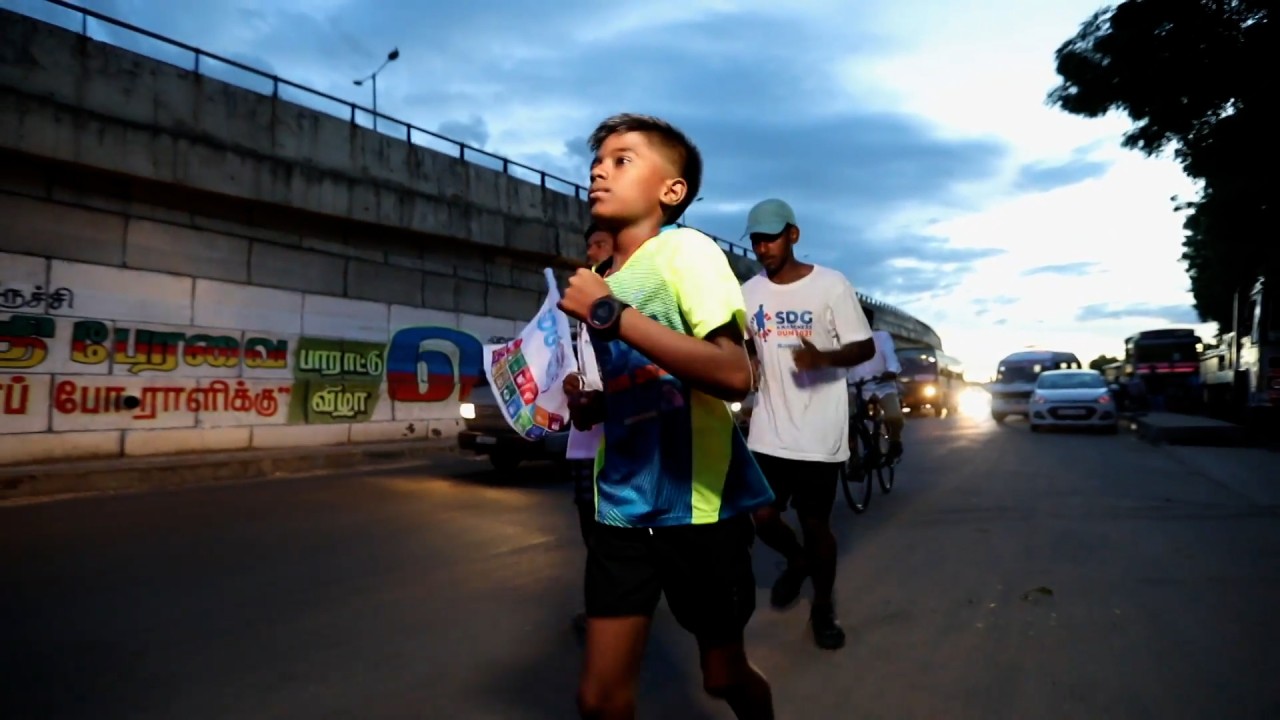
02:25
Running for sustainability: Indian boy to cover 750km for UN sustainable development goals

It is no secret that poor nations are paying the price for environmental damage caused by rich ones. Leaders in the developed world have loudly promised to finance poor nations’ efforts to protect themselves against climate change. Yet, even in the wake of the COP26 talks, the funds remain woefully inadequate.
There are no global courts or mechanisms to enforce these pledges, only the crumbling pillars of goodwill. Rich nations will have to spend their sparse commitments wisely if they want them to amount to anything more than another box-ticking exercise.
A fragmented, “siloed” approach to foreign aid does not work. Having one programme for food, another for water and another for education usually means problems go unsolved. Instead, we need a holistic, all-encompassing approach that actually promotes development.
The Gyandoot programme in India is a perfect example of a failed initiative. It provided computer kiosks in rural areas, yet the lack of electricity and connectivity meant that only a few proved commercially viable.
The computers were left to fall into disrepair, and today they are nothing but a symbol of international incompetence. This illustrates the flaws of a siloed approach; it fails to see the forest for the trees.
The UN Environment Programme estimates that developing countries need US$70 billion per year for adaptation, yet a measly US$356 million was earmarked at the latest climate talks.
However, how foreign aid is spent can be more important than the size of the budget. For example, the cost of globally eradicating smallpox, a disease that has killed 300 million people since 1900 alone, is estimated to have been US$300 million.
For context, that is the cost of a Pirates of the Caribbean movie, or the price of one day of war in Afghanistan. Small budgets can go a long way when the outcomes are transformative, the efforts to deliver them tenacious and the will of the collective invested in real and lasting change.
Unfortunately, foreign aid money, as the Gyandoot programme shows, is not always spent so well.
The moral imperative for providing foreign aid funds is undeniable. In crisis situations, aid can buffer against immediate suffering; however, it is not a long-term solution.
In many cases, external aid can breed dependency, which sometimes prevents sustained improvement in development and per capita income, and leaves communities devastated when that aid is withdrawn.
The UK provides a recent case in point: Prime Minister Boris Johnson slashed the country’s foreign aid budget by US$5.3 billion, a move which critics warned would cause significant suffering to some of the world’s poorest people.
The International Planned Parenthood Federation launched a legal challenge to the cutbacks, citing the “catastrophic impact they will have on millions of women, girls, and marginalised people worldwide, and the thousands of lives that will be lost in the process”.
But there are alternatives to this fragmented and erratic form of development aid; we need programmes that offer sustainable and holistic solutions to global humanitarian issues.

One such example can be found on the island of Unguja, also known as Zanzibar, located off the coast of Tanzania. Many of the island’s 1.5 million residents do not have access to clean drinking water, putting them at unnecessary risk of disease or even death.
Globally, women and children lose 200 million hours every day simply collecting drinking water. Unguja is tackling this problem by testing a pioneering water project guided by a commitment to improving sanitation using environmentally friendly technology.
The programme uses solar power to extract, purify and distribute the water throughout the island. Solar panels installed on the roofs of schools have a dual purpose: producing clean water, and powering laptops for teachers and students. The project is expected to result in an increase in school attendance and a drop in hospital admissions.
Such holistic thinking should become the blueprint for all foreign aid initiatives. Foreign aid funding must be accountable and transparent from beginning to end. More importantly, we need to get the most out of every dollar, euro or pound spent. When funds are sparse and the time to act is limited, the need to get it right is even more severe.
Having rich nations calling the shots on climate change is like allowing criminals to lay out crime and justice policy. All we can hope is that the guilty finally step up to protect the innocent.
Mukhtar Karim is the CEO of the Lady Fatemah Trust, an international NGO